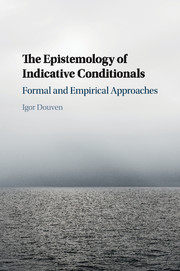B - Survey experiment materials
from Appendices
Published online by Cambridge University Press: 05 November 2015
Summary
These sentences were used in the first stage of the survey experiment reported in Section 5.4.2:
● The UK recession was not as deep as was previously thought.
● Aggressive leopards are not afraid to enter human settlements.
● Next month's unemployment figures will shake up the US electoral landscape.
● Eating egg yolks increases artery wall thickness.
● The Taliban are a serious threat to stability in Afghanistan.
● American voters trust Democrats to protect Medicare.
● Fat around the internal organs is linked to diabetes in humans.
● The Greek government is under pressure from its population to win concessions from Europe.
● Chinese companies are plowing money into US assets at a record pace.
● In the Syrian conflict, the government is responsible for most of the deaths.
The following sentences were used in the second stage of the same experiment as well as in the control experiment:
● In the US, good education is not always within reach.
● The euro zone's economies are suffering from a severe economic downturn.
● A pandemic influenza could emerge from a number of different routes.
● Romney's tax plan would raise taxes on the middle class.
● The civil war in Syria is pushing Iraq closer to Iran.
● Alcohol misuse contributes to hypertension.
● People avoid expressing emotions at work.
● Stressful life events often precede episodes of depression.
● Dog breeders are required to have a license.
● Obama is holding a steady lead in Nevada.
- Type
- Chapter
- Information
- The Epistemology of Indicative ConditionalsFormal and Empirical Approaches, pp. 196Publisher: Cambridge University PressPrint publication year: 2015

